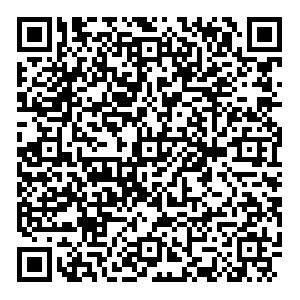|
[1]
|
Driver, R.Newton, P.Osborne, J.(2002).Estab-lishing the norms of scientific argumentation in classrooms.S cience Education, 84: 287 -312.
|
|
[2]
|
Kolst, S.D.(2001a)Scientific literacy for citizen-ship : tools for dealing with the science dimension of controversial socioscientific issues.Science Education, 85 : 291 -310.
|
|
[3]
|
Zeidler, D.L.(1984).Moral issues and social policy in science education : closing the literacy gap.Science Education, 68 : 411 -419.
|
|
[4]
|
Kuhn, D.(1993).Science as argument : implications for teaching and learning scientific thinking. Science Education, 77 : 319-337.
|
|
[5]
|
Sadler, T.D, Zeidler, D.L.(2004).Patten of infor-mal reasoning in the context of socioscientific decision -making.Annual Meeting of the Association for the Education of Teachers of Science, Nashville.
|
|
[6]
|
Perkins, D.N.(1985).Post -primary education has little impact upon informal reasoning.Journal of Educational Psy-chology, 77 : 562 -571.
|
|
[7]
|
Kuhn, D.(1993).Science as argument : implications for teaching and learning scientific thinking. Science Education, 77 : 319-337.
|
|
[8]
|
Zohar, A, Nemet, F.(2002).Fostering students' knowledge and argumentation skills through dilemmas in human ge-netics.Journal of Research in Science Teaching, 39: 35 -62.
|
|
[9]
|
Patronis, T, Potari, D, Spiliotopoulou, V.(1999). Students' arugumentation in decision-making on a socio -scien-tific issue : implications for teaching.International Journal of Sci-ence Education, 21 : 745-754.
|
|
[10]
|
Aikenhead, G. (2004).What is STS in science teaching?.In : D.L.Zeidler, T D.Sadler Beyond STS : A re-search-based framework for socioscientific issues education.An-nual Meeting of the National Association for Research in S cience Teaching, Vancouver.
|
|
[11]
|
Geddis, A.N.(1991).Improving the quality of sci-ence classroom discourse on controversial issues.Science Educa-tion, 75 (2): 169 -183.
|
|
[12]
|
Zeidler, D.L, Walker, K.A, Ackett, W.A, et al. (2002).Tangled up in views: Beliefs in the nature of science and responses to socioscientific dilemmas.Science Education, 86 (3): 343 -367.
|
|
[13]
|
Sadler, T.D, Chambers, F.W, Zeidler, D.L. (2004).Student conceptualizations of the nature of science in re-sponse to a socioscientific issue.International Journal of Science E-ducation, 26 : 387 -409.
|
|
[14]
|
Voss, J.F, Blais, J.Means, M.L.(1986).Infor-mal reasoning and subject matter know ledge in the solving of eco-nomics problems by na? ve and novice individuals.Cognition and Instruction, 3 (4): 269 -302.
|
|
[15]
|
Kolst, S.D.(2001b).' To trust or not to trust, ...' —pupils' ways of judging information encountered in a so-cioscientific issue [J].International Journal of Science Educa-tion, 23 : 877 -901.
|
|
[16]
|
Sadler, T.D, Chambers, F.W, Zeidler, D.L. (2002).Investigating the crossroads of the nature of science, so-cioscientific issues, and critical thinking.Annual Meeting of the National Association for Research in Science Teaching, New Or-leans.
|
|
[17]
|
Pedretti, E.(1999).Decision making and STS edu-cation : exploring scientific knowledge and social responsibility in schools and science centers through an issues -based approach. School.Science and Mathematics, 99 : 174 -181.
|
|
[18]
|
Zohar, A.Weinberger, Y.Tamir, P. (1994).The effect of the biology critical thinking project on the development of critical thinking. Journal of Research in Science Teaching, 31 (2): 183 -196.
|
|
[19]
|
Gelder, T.V.(2000).Learning to reason : a rea-son! albe approach.the Fifth Australasian Cognitive Science Soci-ety Conference, Adelaide.
|
|
[20]
|
Sadler, T.D.(2004).Informal reasoning regarding socioscientific issues : a critical review of research.Journal of Re-search in Science teaching, 41 (5): 513 -536.
|
|
[21]
|
Simonneaux, L.(2001).Role-play or debate to pro-mote students' argumentation and justificationon an issue in animal transgenesis.International Journal of Science Education, 23 : 903 -927.
|
|
[22]
|
Hogan, K.(2002).Small groups' ecological reason- ing while making an environmental managementdecision.Journal of Research in Science Teaching, 39 : 341-368.
|
|
[23]
|
Sadler, T.D, Zeidler, D.L.(2005).The signifi-cance of content know ledge for informal reasoning regarding socio-scientific issues : applying genetics knowledge to genetic engineering issues.S cience Education, 89 (1): 71 -93
|
|
[24]
|
Walker, K.A, Zeidler, D.L.(2003).Students'understanding of the nature of science and their reasoning on socio-scientific issues : A Web -based learning inquiry.Annual Meeting of the National Association of Research in Science Teaching, Philadelphia.
|
|
[25]
|
Pedretti, E.(2003).Teaching science, technology, society and environment (STSE)education : preservice teachers' philosophical and pedagogical landscapes. In : D.L.Zeidler The role of moral reasoning on socioscientific issues anddiscourse in sci-ence education.Netherlands: Kluwer Academic Press, 219-240.
|
|
[26]
|
Keefer, M.W.(2003).Moral reasoning and case - based approaches to ethical instruction in science. In : D. L.Zeidler The role of moral reasoning on socioscientific issues and discourse inscience education. Netherlands : Kluwer Academic.Press, 241 -260.
|

 点击查看大图
点击查看大图




 下载:
下载: